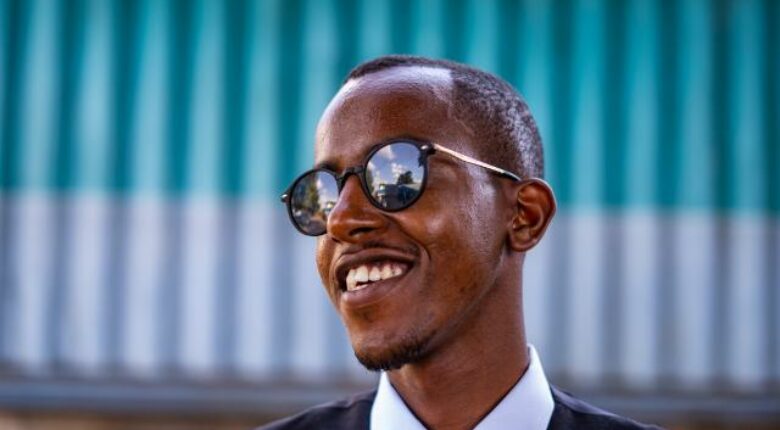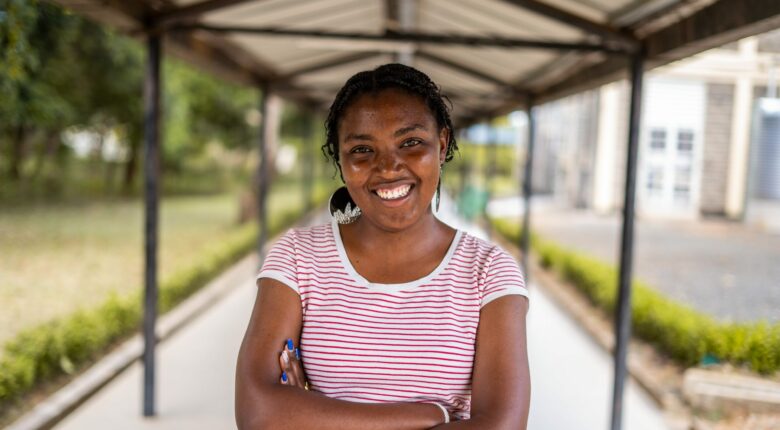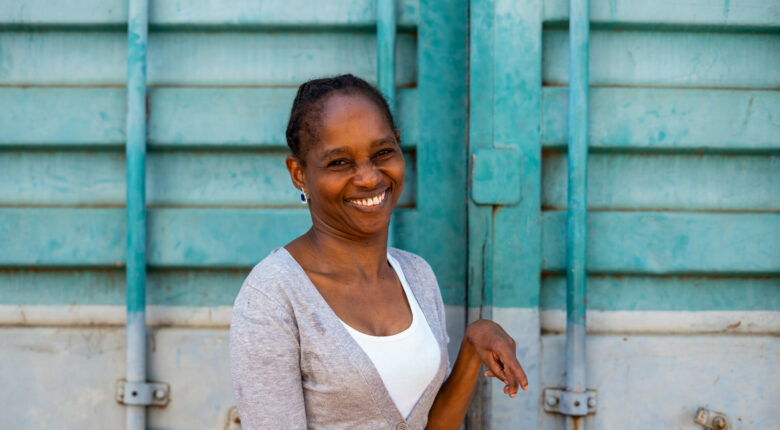Taalkeuze
Wat zijn seksuele en reproductieve gezondheidsdiensten?
Seksuele en reproductieve gezondheidsdiensten (SRG-diensten) zijn diensten die mensen helpen bij hun seksuele en reproductieve gezondheid. Je zou bijvoorbeeld kunnen denken aan seksuele voorlichting op scholen, het voorkomen en behandelen van seksueel overdraagbare aandoeningen (SOA’s), en het bieden van anticonceptiemiddelen. Ook gaat het om de zorg rondom een zwangerschap, en het aanpakken van gendergerelateerd geweld.
Waarom zijn deze diensten niet voor iedereen toegankelijk?
Veel kwetsbare groepen, waaronder meisjes, LHBTQI+ personen en mensen met een handicap, lopen tegen obstakels aan om toegang te krijgen tot de zorg en diensten die zij nodig hebben. Daar zijn verschillende redenen voor:
- Stigma en discriminatie – Veel kwetsbare groepen krijgen geen toegang tot de zorg die ze nodig hebben door traditionele opvattingen over de rolverdeling tussen mannen en vrouwen. Bovendien worden LHBTQI+ personen en mensen met een handicap vaak als minderwaardig beschouwd. Zo werd een jaar geleden in Oeganda nog de Anti-Homosexualiteitswet aangenomen, en wereldwijd blijft het aantal aanvallen op LHBTQI+ personen stijgen.
- Gebrek aan seksuele gezondheidsdiensten – Veel zorginstellingen hebben te maken met een gebrek aan geld en een slechte verdeling van zorgbudgetten. Dit resulteert in slechte of soms zelfs helemaal geen seksuele en reproductieve gezondheidsdiensten. Daarnaast krijgen organisaties die zich inzetten voor SRG te weinig steun, en wordt er te weinig aandacht besteed aan meisjes, LHBTQI+ personen en mensen met een handicap. Een treffend voorbeeld is het verhaal van Josephine, die werd geweigerd door het ziekenhuis toen ze op het punt stond om te bevallen, simpelweg omdat ze een handicap heeft.
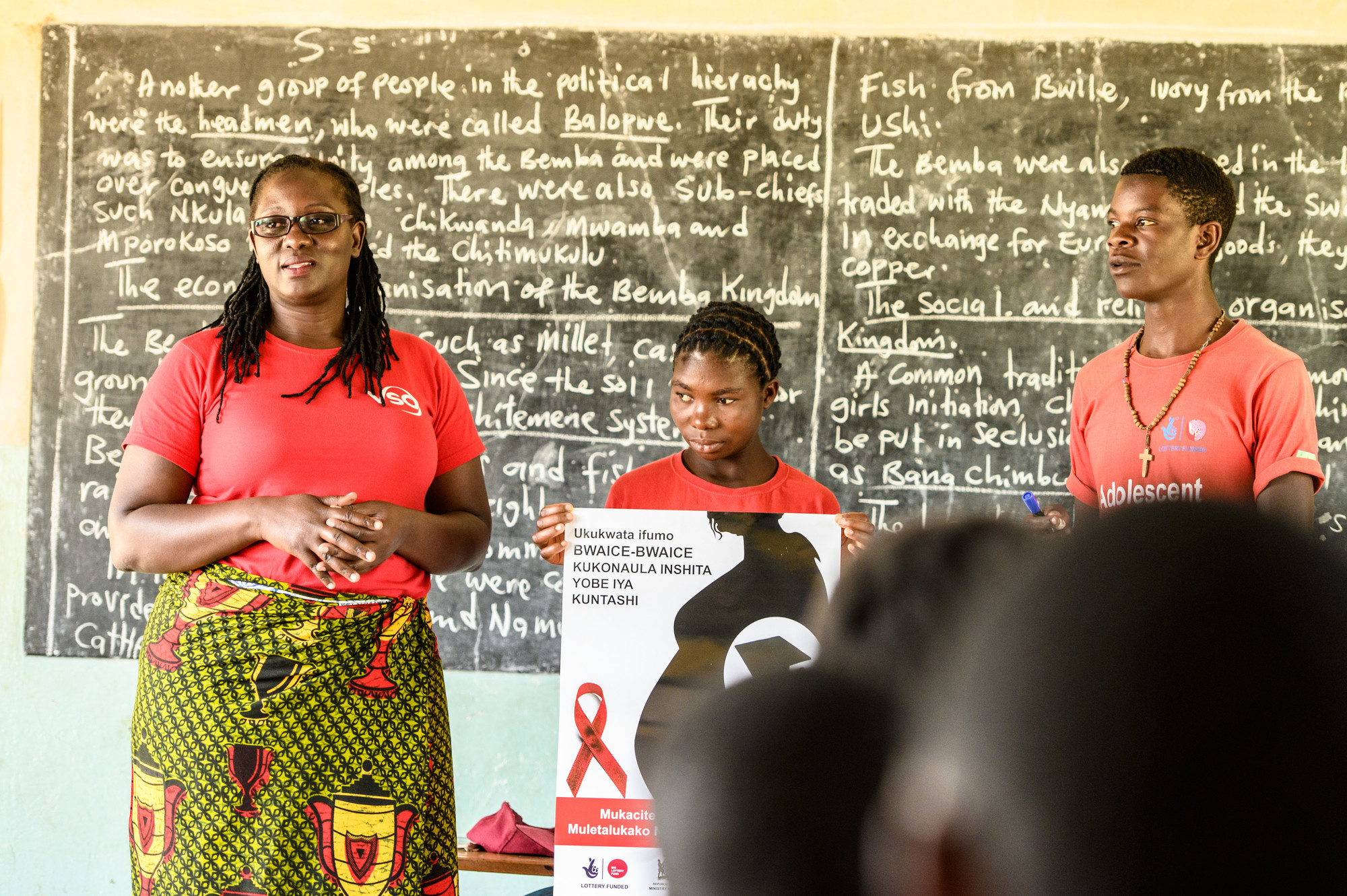 Changemaker Monica Atim vertelt, samen met Geofrey (19) en Catherine (23), over de gevaren van tienerzwangerschappen.
Changemaker Monica Atim vertelt, samen met Geofrey (19) en Catherine (23), over de gevaren van tienerzwangerschappen.
De noodzaak om nu in actie te komen
Wereldwijd worden miljoenen mensen beperkt in hun toegang tot seksuele en reproductieve gezondheidsdiensten. Zonder snelle actie blijven kwetsbare groepen buitengesloten en worden hun fundamentele rechten geschonden. De gevolgen daarvan zijn groot:
- Tienerzwangerschappen nemen toe, waardoor jonge meisjes hun opleiding niet kunnen afmaken.
- Seksueel overdraagbare aandoeningen (waaronder HIV) worden niet tijdig opgespoord en behandeld, met alle gevolgen van dien.
- Gendergerelateerd geweld blijft een groot probleem zonder voldoende opvang en hulp.
- Jongeren met een beperking krijgen vaak niet de zorg of informatie die zij nodig hebben, doordat hun behoeften niet serieus genomen worden of over het hoofd worden gezien. Daardoor ontstaan ernstige gezondheidsproblemen en raken deze jongeren in een sociaal isolement.
VSO komt in actie met vijfjarig programma
VSO pakt het probleem bij de kern aan met het vijfjarige Make Way-programma, dat inmiddels is geïmplementeerd in Ethiopië, Kenia, Rwanda, Uganda en Zambia. We voeren dit programma uit in samenwerking met Akina Mama wa Afrika, Forum for African Women Educationalists, Liliane Foundation, The Circle of Concerned African Women Theologians Kenya, Wemos en het Nederlandse ministerie van Buitenlandse Zaken.
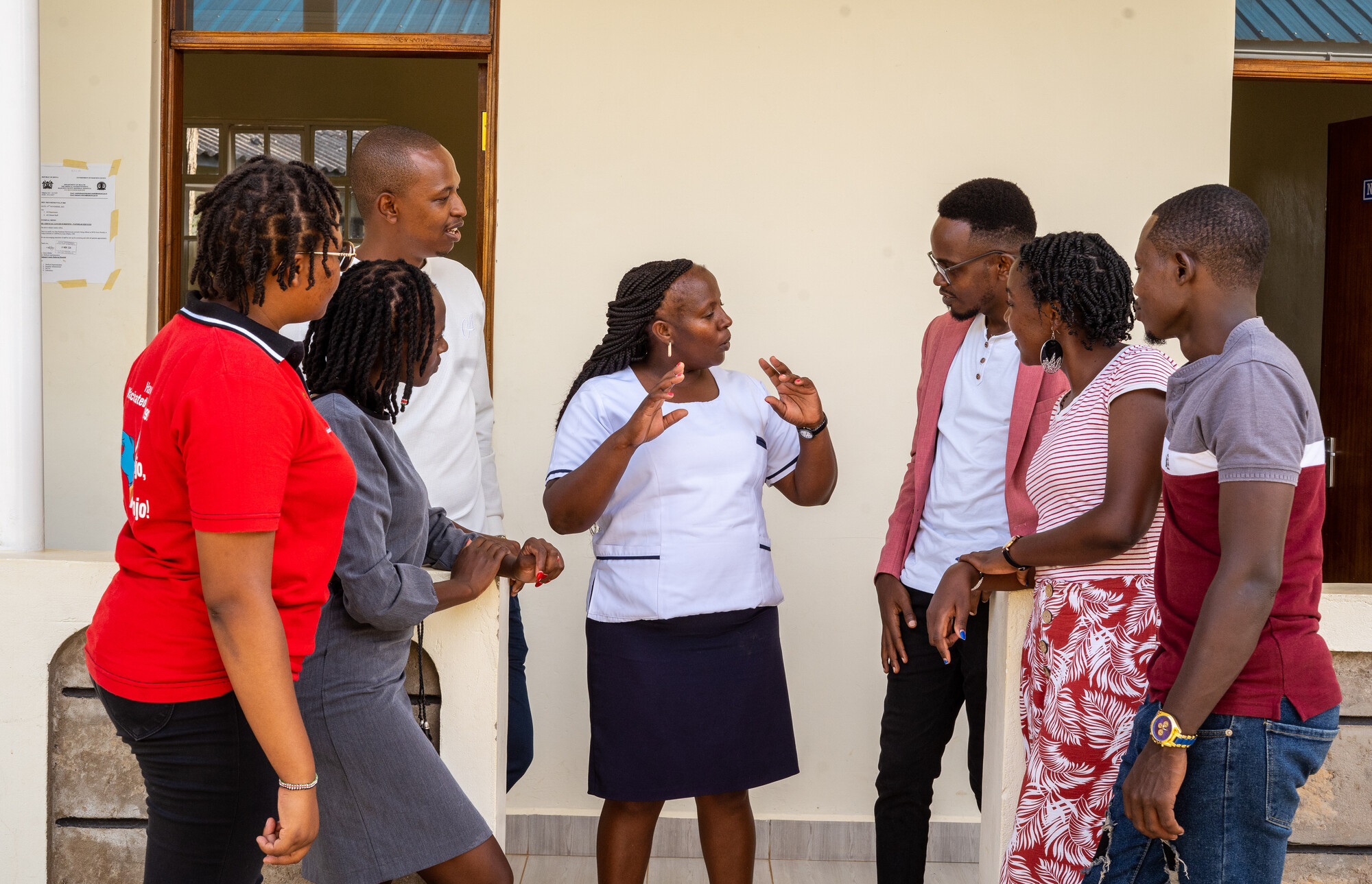 Keniaanse jongeren gaan in gesprek met een verpleegkundige van het Youth Friendly Centre (opgericht door VSO).
Keniaanse jongeren gaan in gesprek met een verpleegkundige van het Youth Friendly Centre (opgericht door VSO).
Onze stapsgewijze aanpak
1. In kaart brengen van barrières
Onze stapsgewijze aanpak begint bij het in kaart brengen van de barrières die jongeren ervaren, zoals discriminatie, een gebrek aan privacy, een tekort aan SRG-middelen, etc. We luisteren naar hun verhalen en begrijpen wat hen belemmert. Vervolgens bedenken we samen oplossingen en ontwikkelen we hulpmiddelen voor zorgverleners, beleidsmakers en organisaties.
2. Alle partijen betrekken bij de oplossing
We vinden het belangrijk om alle betrokkenen op elk niveau mee te nemen in het proces. Daarom bieden we trainingen aan organisaties en jongerenvertegenwoordigers, en werken we samen met overheden om inclusieve plannen te ontwikkelen. Ook creëren we meer bewustzijn over SRG binnen de maatschappij. Pas wanneer de hele samenleving accepteert dat iedereen recht heeft op goede zorg, kunnen we verandering creëren.
3. Kwetsbare groepen zelf het voortouw laten nemen
Ons uiteindelijke doel is om meer ruimte te creëren voor kwetsbare groepen, zodat zij actief kunnen opkomen voor hun eigen rechten. We bieden een gebruiksvriendelijke gids voor iedereen die wil pleiten voor gelijke SRG-rechten. Met de juiste begeleiding en mentorschap zorgen we ervoor dat jongeren steeds vaker zelf de leiding nemen in het lobbyen voor verandering.
“We krijgen vaak van mannen te horen dat de meisjes in hun familie niet bezig zijn met seksualiteit en dat het dus niet nodig is om hen te informeren. Ook zeggen ze dat het niet aan de meisjes zelf is om te kiezen hoeveel kinderen zij willen.” – VSO vrijwilliger Aisha
Een scorekaart om zorginstellingen te beoordelen
Om SRG-diensten toegankelijk te maken voor iedereen, maken we gebruik van een Intersectionele Community Scorekaart. Via deze kaart kunnen kwetsbare jongeren hun ervaringen met een specifieke zorginstelling delen. Werden ze vriendelijk ontvangen en goed geholpen? Of liepen ze juist tegen belemmeringen aan, zoals een onvriendelijke benadering of gebrekkige toegankelijkheid?
Ons Gezondheidscomité, bestaande uit jeugdexperts en zorgprofessionals, zorgt er vervolgens voor dat er iets met deze feedback wordt gedaan. Er wordt direct actie ondernomen door bijvoorbeeld oprijplaten aan te schaffen voor mensen in een rolstoel, een doventolk aan te nemen, of een jeugdcentrum op te richten.
Een greep uit onze resultaten
✅ We hebben deelgenomen aan wereldwijde conferenties om SRG-rechten te promoten.
✅ We hebben meer dan 30.000 mensen bereikt met informatie over SRG-rechten.
✅ De Intersectionele Community Scorekaart werd gebruikt in meer dan 25 faciliteiten.
✅ De resultaten van de Intersectionele Community Scorekaart werden door 50 maatschappelijke organisaties ingezet voor belangenbehartiging.
✅ In Zambia werden meer dan 350 gemarginaliseerde jongeren betrokken bij het vinden van oplossingen.
✅ Er zijn meerdere jeugdcentra opgericht, waar jongeren in een veilige omgeving hun vragen kunnen stellen rondom SRG.
✅ Beleidsmakers en organisaties zijn getraind om strategieën uit te wikkelen waarin rekening wordt gehouden met de situaties van kwetsbare groepen.
Zo kun jij helpen!
Met het Make Way-programma hebben we al fantastische resultaten behaald, maar we zijn er nog niet. Er zijn op dit moment nog miljoenen kwetsbare jongeren die geen toegang krijgen tot de zorg die ze nodig hebben. Laten we daar samen verandering in brengen! Door donateur te worden van VSO, help je om bewustwording te vergroten, zorg toegankelijk te maken en jongeren in staat te stellen om voor hun eigen rechten op te komen. Doneer nu en maak het verschil!

